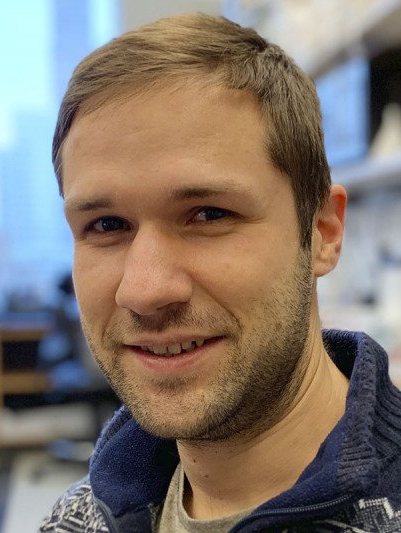Tissue-colonizing disseminated tumor cells secrete prostaglandin E2 to promote NK cell dysfunction and evade anti-metastatic immunity Journal Article
| Authors: | Pedde, A. M.; Kim, H.; Donakonda, S.; Baumann, T.; Bayerl, F.; Meiser, P.; Hirschberger, A.; Klement, C.; Grassmann, S.; Öllinger, R.; Hüser, N.; Hartmann, D.; Laschinger, M.; Trapani, J. A.; Zippelius, A.; Bald, T.; Wiedemann, G. M.; Rad, R.; Sun, J. C.; Höchst, B.; Böttcher, J. P. |
| Article Title: | Tissue-colonizing disseminated tumor cells secrete prostaglandin E2 to promote NK cell dysfunction and evade anti-metastatic immunity |
| Abstract: | Natural killer (NK) cells are critical for anti-metastatic immunity and can eliminate metastasizing tumor cells within circulation and sites of metastatic seeding. Here, we show that disseminated tumor cells (DTCs) colonizing the mouse lung secrete prostaglandin E2 (PGE2) to locally induce NK cell dysfunction, allowing outgrowing metastases to escape immune control and establish metastatic disease. Mechanistically, PGE2 signaling through its receptors EP2 and EP4 mediates NK cell dysfunction, which leads to reprogramming of NK cell gene expression and results in impaired production of anti-metastatic cytokines. In human cancer patients, the PGE2-EP2/EP4 axis is associated with NK cell dysfunction within distant organ metastases. Disabling EP2/EP4 signaling in NK cells prevents their dysfunction in DTC-colonized lungs and achieves effective NK cell-mediated control of metastatic disease. Our findings reveal a suppressive signaling axis exploited by metastasizing tumor cells to escape immune control in distant organs that could be targeted for metastatic cancer therapy. © 2024 The Author(s) |
| Keywords: | controlled study; gene cluster; human cell; promoter region; nonhuman; flow cytometry; ki 67 antigen; transcription factor foxp3; cd8+ t lymphocyte; mouse; phenotype; animal tissue; stat3 protein; melanoma; metastasis; gene expression; confocal microscopy; animal experiment; animal model; transcription factor; genetic transcription; cytotoxicity; cancer therapy; genetic transduction; granzyme b; cellular immunity; gamma interferon; epigenetics; cyclooxygenase 2; prostaglandin e2; cd4+ t lymphocyte; natural killer cell; adoptive transfer; cytokine production; immunosurveillance; bioinformatics; lymphocyte depletion; interleukin 12; interleukin 15; immunocompetent cell; peripheral blood mononuclear cell; immunofluorescence microscopy; tumor necrosis factor; lung blood vessel; transcription initiation site; microdissection; rna isolation; metastasis inhibition; density gradient centrifugation; human; article; rna sequencing; differential expression analysis; gene editing; crispr-cas9 system; cytokine signaling; k-562 cell line; paired end sequencing; cp: cancer; cp: immunology; cyclic amp responsive element modulator; nk cell dysfunction |
| Journal Title: | Cell Reports |
| Volume: | 43 |
| Issue: | 11 |
| ISSN: | 2211-1247 |
| Publisher: | Cell Press |
| Date Published: | 2024-11-26 |
| Start Page: | 114855 |
| Language: | English |
| DOI: | 10.1016/j.celrep.2024.114855 |
| PROVIDER: | scopus |
| PUBMED: | 39541209 |
| DOI/URL: | |
| Notes: | Article -- Source: Scopus |
Altmetric
Citation Impact
BMJ Impact Analytics
Related MSK Work





